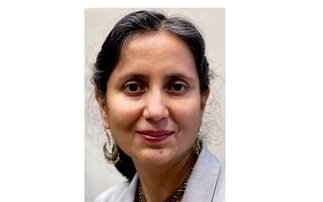Sustainable Development Goal 2 has, on the face of it, a clear-cut aim: that in 12 years' time not a single person on the planet will go hungry. But the simplicity of this ambitious statement masks a much more complex reality.
The development priorities relating to food now stretch far beyond the traditional focus on tackling famines as and when they occur. The official goal does not just require everyone to have a sufficient quantity of food, but that their meals contain all the nutrients needed for healthy human development and that access to that food is secure and stable. It also means tackling obesity as well as starvation and malnutrition, and doing so in a way that meets the needs of a diverse and rising world population while tackling related challenges such as climate change, biodiversity loss and deforestation.
To meet the goal, the UN set sub-targets for doubling the agricultural productivity and incomes of small-scale food producers, ensuring sustainable food production systems and implementing resilient agricultural practices, and maintaining the genetic diversity of seeds, plants and farmed animals.
The global food system is broken - Tim Benton, University of Leeds
But none of this can be achieved in isolation, which is why SDG2 is inextricably linked to other goals focusing on climate change, peace, health, water, life on land and below water, and responsible production and consumption. Not only will work in these areas lead to more sustainable agricultural systems and increase food security, but the way that hunger limits human development blocks achievement of the other goals.
These targets would be daunting enough even before you consider how recent progress in tackling global hunger appears to be faltering. The latest figures on food security and nutrition from the UN's Food and Agriculture Organization (FAO), published in September, show that global hunger has increased over the past three years following a decade of decline. In 2017, the FAO estimates there were about 821 million undernourished people globally - approximately one in every nine humans. Undernourishment and severe food insecurity appear to be increasing in almost all of Africa and South America, while obesity is climbing in many regions of the world.
The FAO says the rise is closely associated with the increase in conflict across the world and the growing variability and intensification of climate extremes. According to charity UNICEF, changes in climate are already undermining the production of major crops such as wheat, rice and maize in tropical and temperate regions and the organisation expects this to worsen if efforts are not made to increase climate resilience.
The FAO analysis shows that climate change has both a direct and a non-direct impact on food. It harms agricultural productivity, food production and cropping patterns leading to shortfalls in the availability and reliability of food; affects water supplies; changes child care practices including breastfeeding; and reduces the nutrient quality and diversity of foods produced and consumed. One recent study, for example, suggests that increased CO2 in the atmosphere could cause staple crops to produce smaller amounts of nutrients such as zinc, iron and protein.
Extremes of climate also often lead to food price spikes and supply shortages, which in turn can result in losses in agricultural income, migration, and even conflict and insecurity.
Just last week a separate study from a group of 130 science academies from around the world declared bluntly that the global food system is "broken", leading to malnutrition, obesity, and spiralling greenhouse gas emissions. "The global food system is broken," Tim Benton, professor of population ecology at the University of Leeds, told the Guardian. "Whether you look at it from a human health, environmental or climate perspective, our food system is currently unsustainable and given the challenges that will come from a rising global population that is a really [serious] thing to say."
The implications for businesses of this global crisis are both obvious and hugely complex, taking in corporations' controversial role in exacerbating the problem and the critical role they are likely to play in the emergence of more sustainable agricultural and food supply chain models.
A woman harvests rice in Oecussi, Timor-Leste | Credit: UN Photo/Martine Perret
At the sharp end, Fiona Gooch, senior policy advisor at fair trade campaign group Traidcraft, says some big businesses are guilty of indirectly undermining food security in poorer regions by switching farmers into high-risk commercial crops away from food security production, by specifying that farmers can only use seeds that cannot reproduce, or by using stolen land to produce high-value cash crops. Such practices need to end, she says.
But while governments and the charitable sector have long played an important role in tackling hunger, notably by distributing food aid in emergencies, the UN sees the engagement of the food and agriculture sector as critcal to the success of SDG2. Rodrigo Castañeda, chief of the FAO's partnerships unit, says the positive impact of business on the food system to date needs to be more widely recognised. "In recent decades, the governance of food and agriculture has been increasingly transformed on a global level by new technological, knowledge-based, financial and managerial resources and innovation," he says. "The private sector has been instrumental in driving these transformations."
Things need to be changed more fundamentally and probably quicker than most people would like - Alison Cairns, FReSH
As well as increasing global production of agricultural goods, businesses have been integral to the development of fortified products for sale across the world, as well as nutritionally dense foods that can help severely malnourished children. It is a narrative that rarely gets a look in alongside those stories of corporate supply chain malfeasance.
"A lot of really positive things have happened," agrees Alison Cairns of Food Reform for Sustainability and Health (FReSH), a joint project between the World Business Council For Sustainable Development (WBCSD) and the EAT Foundation. "But with the big focus on production and productivity the environmental impact has not been realised in time. If you want healthy diets and sustainable food systems things need to be changed more fundamentally and probably quicker than most people would like."
The UN agrees, concluding that a "profound change of the global food and agriculture system" is still needed, characterised by increased investment in rural infrastructure, agricultural research and extension services, technology development, and plant and livestock gene banks.
There are solid business opportunities for those businesses that get involved in this green revolution. A 2016 report by the Business and Sustainable Development Commission found that implementing food-related SDGs could be worth more than $2.3tr and create 80 million jobs for the private sector by 2030. A large bite of this pie would come in the developing world, reflecting the huge opportunities presented by growing markets that are currently served by chronically inefficient agridultural sectors.
The report estimates the investment required to achieve these wide-ranging economic benefits stands at around $320bn per year. It highlight opportunities throughout the food and agriculture value chain, from inputs and production through to food processing, logistics, retail and disposal, with the biggest gains set to come from cutting food waste, developing low-income food markets, and deploying new technologies through large-scale farms.
But it is not just in the developing world where such gains are on offer. The steps required to improve the sustainability of the food sector tend to be pretty universal, and as Cairns explains food businesses can deliver wins straight away by reformulating products to increase the proportion of nutritious ingredients and designing out the poor ones, increasing the performance and diversity of their supply chains, improving packaging to reduce food waste, and cutting the amount of food waste produced, and considering how to shift consumer demand. "A lot [of this] isn't about coming up with something new, it's about doing it effectively and collaboratively," she says.
Turning waste food back into edible dishes - like this 'Disco Soup' distributed in London - is one of the quickest ways firms can boost the sustainability of the food chain | Credit: Chris Young / londonfoodlink.org
But apart from efforts to tackle food waste, which is frequently mentioned in corporate social responsibility strategies and even has its own specific SDG target in under SDG12 on responsible production and consumption, specific corporate engagement with SDG2 has been pretty patchy to date. Few businesses consider it a priority, according to a recent analysis of the SDGs by consultancy giant PwC, despite strong interest in the subject from citizens and consumers.
Megan DeYoung, a business development and sustainability consultant, says large companies simply will not upend their business models and operating structures - much as that might be necessary in the long-run - but they can still play a bigger and more aggressive role in meeting SDG2. "By their sheer size, large companies have an enormous impact on the food supply - how it is grown, what it contains, who it feeds," she explains. "Sustainability commitments are helpful, and many companies have had them for several years. [But] what companies need to do now is think about how their strategy, innovation and products can address hunger, nutrition, food security and sustainable agriculture."
But Paul Newnham, coordinator of the SDG2 Advocacy Hub, which coordinates global campaigning and advocacy on the goal, argues that some businesses are reticent to wade into a debate where there are still plenty of conflicting theories on what best practices look like. "My approach has been about creating a conversation to get the change we need, to build trust and networks," he says. "We need to get the science to help us decide which are the most important shifts to happen the quickest." In a field that is still dominated by hugely controversial arguments over GM crops, land use, diets, international trade, and farming subsidies securing such clarity is easier said than done.
Newnham concedes some parts of the puzzle are yet to be put in place. A key step forward is the imminent publication of a major report by the EAT-Lancet Commission on Food, Planet and Health, a collaboration between the EAT Foundation, The Lancet, Wellcome Trust and the Stockholm Resilience Centre. It is set to examine what constitutes a universal healthy and balanced diet, and will make recommendations for what needs to change globally to ensure everybody has access to it. It will look at dietary health, as well as planetary boundaries, biodiversity, land allocation for food, water and greenhouse gas emissions.
Organisations working with the food sector are eagerly awaiting its publication, currently expected in January, and hope it will give a scientific underpinning to their future work. Cairns says the EAT-Lancet report will "spell out what the 2C [trajectory for] food will look like", and warns that businesses have to prepare for much more systemic change.
"Business mobilisation on climate change is causing big structural changes within the energy sector," she observes. "For years they had a 2C target to go for, they had a mandatory platform in terms of [UNFCCC) COP and businesses' perception of the lens that unlocked it was around the risks and common understanding of the challenges. What's happening with the food sector is similar although it's infinitely more complicated; it's more local, more cultural and there are more trade offs. There are multiple targets that you have to achieve at the same time. But you can see similarities and that's what we're trying to replicate."
She wants the food and agriculture sector to learn from the mistakes of the climate movement. "One of things climate did badly was not thinking about the transition for major sectors and the job impacts of that," she argues. "That's already on our radar in terms of what transition would be required within the global food system and how businesses will respond."
It is a crucial point and one which touches upon another issue highlighted by the climate movement: the risk of stranded assets. If governments and businesses do step up efforts to deliver on SDG2 and accompanying SDGs covering climate change and waste, then it is inevitable that regulations, production patterns, and diets will have to change. The growing interest in vegetarianism and veganism, coupled with tightening regulations governing deforestation and proposed reforms to agricultural subsidies in countries like the UK highlight how farmers and food businesses that are wedded to unsustainable practices could soon find key assets become stranded. As the recent furore over retailer Iceland's palm oil free policy has shown, food sustainability is a uniquely emotive topic that has the ability to evoke a powerful and unexpected response fron consumers.
One way the private sector can respond, says the FAO's Castañeda, is by rethinking its approach to its value chain. "Markets that are developed as vertical value chains for single products do not match the needs of diversified production systems or the needs of consumers for diversified and healthy diets, particularly those of small-scale food producers and poor urban consumers," he warns. "Recently, policies have focused more on strengthening global value chains and less on local and regional markets. Shifting focus [onto] local and regional markets would encourage diversified production and improve access to healthy food for improved diets."
This is where two other important aspects of this SDG come in.
To make access to food more secure, the UN wants to prevent trade restrictions and distortions in world agricultural markets. It wants such reforms to be met by fulfilling the ambition of the Doha Development Round, which aimed to rebalance global trade in favour of poorer countries. The talks were deadlocked for years until a WTO decision in 2015 to eliminate farming export subsidies, which the EU confirmed that it would do two years later. But action has since stalled again, and development experts are sceptical that a breakthrough can be achieved any time soon given current global trade disputes around everything from Brexit to President's Trump's steel tariffs.
The UN also wants to ensure food commodity markets function properly to limit extreme food price volatility. This means controlling futures contracts which are not linked to the delivery of agricultural products at a particular time and place, and which skew the prices that farmers can charge for their goods.
There is little doubt that these problems are largely the purview of governmental actors with a side order of responsibility for the financial industry. However, businesses at large can play a role in tackling these problems.
Rodrigo Castañeda, chief of the FAO's partnerships unit, says private sector participation in policy dialogues relating to food and nutrition security at national and international levels can help shape more effective interventions with more lasting results. "It allows for private sector views and technical expertise to be heard and discussed with different stakeholders, from governments to farmers, from researchers to parliamentarians," he argues. "This nurtures a sense of ownership that will enhance sustainability of policy adoption and implementation."
Cairns says there is a window of opportunity to put these changes in place. "Now is the time, between now and 2020 when you've got the Olympics, five years on from the Paris Agreement, the biodiversity COP in China - these are all elements of that system," he advises. "The good thing is that there's not the tribalism here; we're all actively looking at how to work together. I think there's a recognition that change is needed, that business has some responsibility for creating this and that business has a role to play. But in the businesses I work with there's a real desire to ask 'how do we make this transition and do it sensitively?'. They're willing to respond because they're global organisations and have been evolving for generations and want to be around for another 200 years. And it's their competitive advantage to act quickly."
Earlier this year Lidl announced plans to sell cut-price veg boxes with surplus food | Credit: Lidl
A growing number of businesses share this analysis. The food retail sector has recognised it is on the front line of the effort to build a sustainable agricultural system and has a whole host of reputational, risk management, and cost-related reasons for wanting to play a progressive role. As a result barely a week goes by without a leading retail or consumer goods giant announcing sweeping new sustainability targets covering everything from packaging to supply chain impacts.
Delivering on these targets remains an extremely daunting challenge, especially as climate and environmental impacts escalate. But if the industry can meet the ambitious goals it has set the potential is there for an era-defining achievement: the end of hunger within a single generation. It is as deceptively simple as that.





